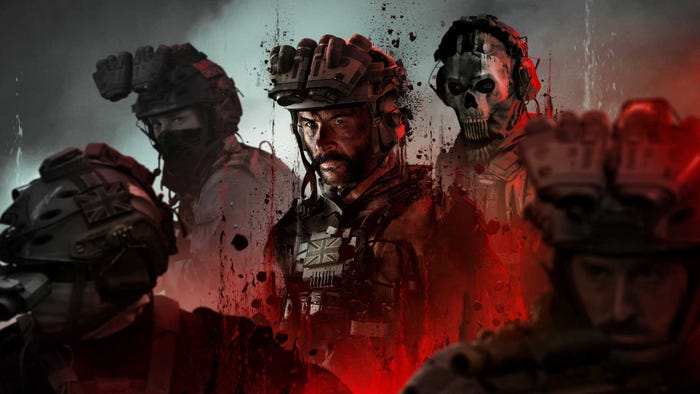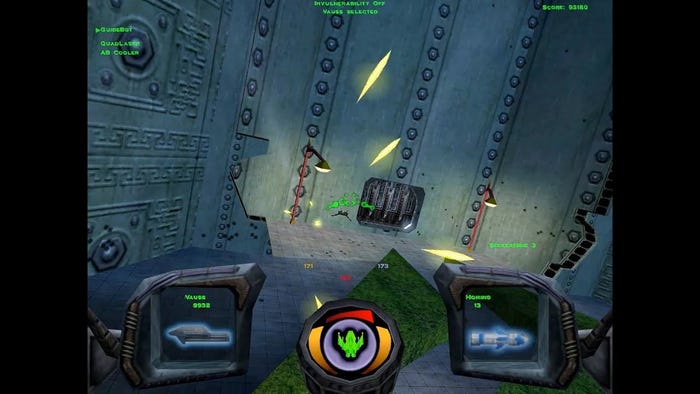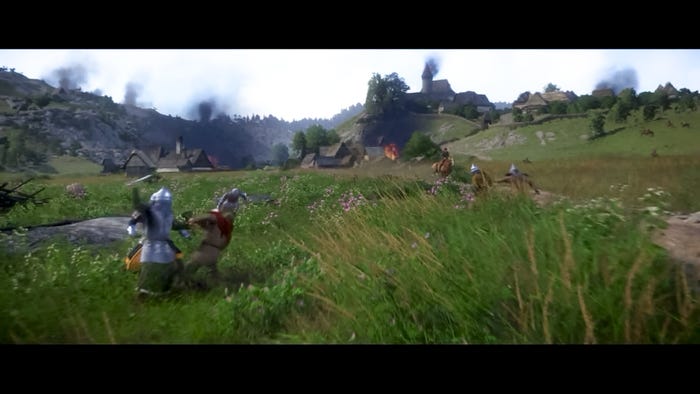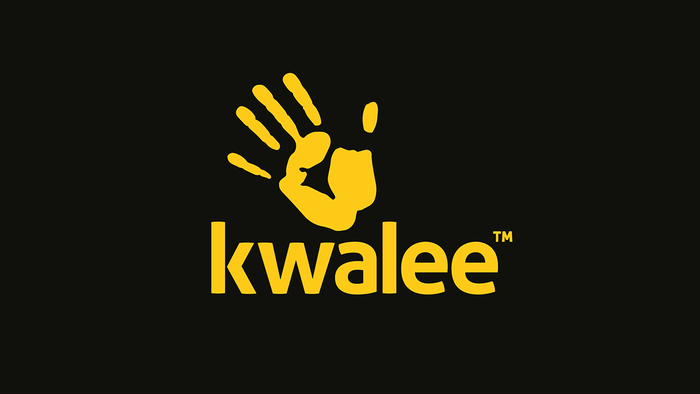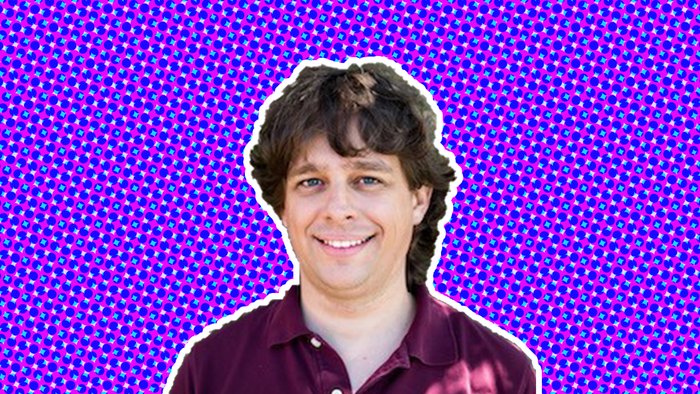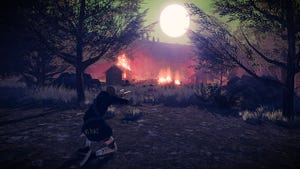GLAAD associate director of games Blair Durkee explains what developers can do to do more for the LGBTQ game community.
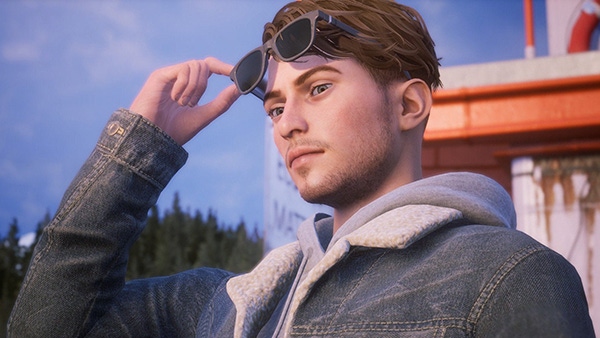
On paper, LGBTQ representation in video games and video game development is better than it's ever been. Games like Haven will spend time and effort to expand the portrayal of same-sex couples, more developers like 343 Industries are supporting character creators that don't rely on strict gender binaries, and when Pride month rolls around every June, more studios will include in-game content and participate in local Pride parades.
Key word though--on paper. The last few years of revelations about alleged sexual harassment and toxicity at companies like Activision Blizzard, Quantic Dream, and even Bungie have shown that decades of industry homophobia and transphobia don't go away overnight.
What can developers do better, not just in designing game characters, but for their workers and their players? These are questions that GLAAD associate director of games Blair Durkee has been answering with game studios for some time. We chatted at DICE 2022 about what developers are doing right, and where there's still room for growth.
The long arc of the universe doesn't always bend towards progress
Durkee began our conversation by pointing out you can't talk about the LGBTQ community in video games without acknowledging world events.
And there are far, far too many world events. The state of Texas recently attempted to deem gender-affirming care for minors as "child abuse." Florida is advancing a "don't say gay" bill that would shut down mention of homosexuality in schools. Countries like China, Russia, and the United Kingdom have all advanced domestic agendas targeting gay or transgender individuals.
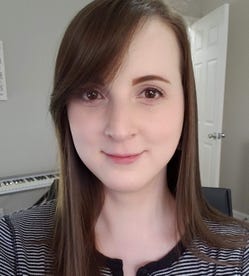
A photo of Blair Durkee
Durkee evoked the argument that 2014 right-wing hate movement gamergate helped give rise to the modern "alt-right," and helped conservative activists find their sea legs in game communities. "Gaming is inextricably tied to our cultural moment and the backlash against the LGBTQ community," she said.
It's an international issue too. Electronic Arts grappled with how to publish a Sims 4 expansion due to Russia's laws against "gay propaganda." Movie studios like Disney have been carefully editing their films to make it easy to slice depictions of same-sex relationships out for countries like Russia, China, or Saudi Arabia.
Durkee and I had been speaking less than 24 hours after Russia began its invasion of Ukraine, and word had begun to spread that the Russian government had a "hit list" of LGBTQ activists in the country.
Her point was that, even if you perceive the video game community as more LGBTQ-friendly, the world is not, and that is affecting how game-makers of all backgrounds are trying to navigate the moment. GLAAD's mantra in moments like this has been "more representation is better representation," and to take wins where it can get them, while supporting LGBTQ advocates in other regions.
That philosophy has led to some interesting observations from Durkee's position--and some specific steps developers should be taking.
Selective improvements
Durkee's first observation was that in the world of transgender representation, improvements made by larger developers have not been entirely even. Modern games like Dragon Age: Inquisition, and Tell Me Why (which GLAAD consulted on) have showcased the stories of transgender men, but transgender women haven't been portrayed in the same way.
Or to give more context, when video games have chosen to use transgender characters as the butts of jokes or the targets of player violence, they tended to use transgender women. "I don't think it's a conspiracy or anything, but it's an unfortunate coincidence," she said. "Now that we've turned the page on that a little bit, trans women are nowhere to be found."
One of the winners for GLAAD's inaugural 2019 awards was The Elder Scrolls Online: Summerset for its questline telling the story of a transgender woman players can assist. But the character of Alchemy is just one NPC in a cast of hundreds.

The Elder Scrolls Online NPC named Alchemy
GLAAD is apparently seeing a lot of interest in nonbinary characters in the studios it consults with--but a challenge Durkee and her colleagues have faced is the challenge of localization. The English language's nonbinary "they" pronoun doesn't exist in other tongues, especially romantic ones, where every word is literally loaded with gender.
Many studios (like Respawn Entertainment with Apex Legends character Bloodhound) have been willing to take on that challenge, so Durkee says she's encouraging them to think more intersectionally about the characters they create.
The experiences of transgender people play out differently among axes of race, gender, income level, or even body type. Studios that understand that experience and improve on it when portraying these characters can make more authentic, more relatable experiences, she said.
What resonates with your community?
Our chat with Durkee took an interesting turn when we began discussing her DICE roundtable--where she and other attendees focused on the topic of what developers can do for their communities. This brought us to the topic of what might be called "unexpected representation"--or when developers who are savvy about their communities can make help them feel safe and welcome in measures beyond character design.
Durkee had an interesting take about sometimes-mocked steps like the inclusion of nonbinary pronouns for players in Call of Duty: Black Ops - Cold War. Sure, it's great that Treyarch and company made space for players who wanted to not use gendered pronouns, but when the player character is hanging out with infamous conservative figurehead and US President Ronald Reagan, it can feel very strange.
This is where GLAAD's "more is better" philosophy kicks in for Durkee. "I'm not going to deny that is very strange, and that maybe they could have gone a little bit further with representation," she said. "But if you were to ask me 'is the solution to just not offer the they/them pronouns,' I would say 'no, they should offer it."
That's because GLAAD knows that there are plenty of transgender Call of Duty players, many of whom are nonbinary. There's even intersection with the US Military veterans who enjoy the game, because "as we found out during the Trump administration, there are lots of trans people in the military," Durkee said.
But a player-focused approach goes even further beyond that line of thinking. Durkee gave the unconventional example of Fortnite's in-game Ariana Grande concert, which came with player avatars styled after the pop music superstar. "It apparently really resonated with the LGBTQ Fortnite community," Durkee said. "It wasn't even explicit LGBTQ representation. It was just something culturally resonant."

One player who spoke to Durkee explained that Grande's addition to the game led to her friend group going from never playing Fortnite to playing it five times a week. It's a tradition of pop culture icons being adopted by different queer communities as a means of expression--you can find older examples in American history like Judy Garland, Dolly Parton, and Mariah Carey.
Obviously just dropping Ariana Grande into your game is not guaranteed to speak to LGBTQ players in your target audience. "LGBTQ people aren't a monolith," Durkee explained, pointing out that Fortnite's existing musical skins and IP crossovers laid the groundwork for that moment of success. But being aware of what your community values can help you find meaningful wins.
The "pipeline" metaphor is really weird when you think about it
As mentioned earlier, revelations about sexual harassment and toxicity in the workplace can be additionally damning for LGBTQ employees at game studios. Plenty of companies who put Pride flags on their Twitter profiles in June have been found to be fostering homophobia or transphobia come July. There's room to grow in how companies recruit and retain LGBTQ workers.
Durkee has heard well-intended complaints from developers in her time speaking with company leaders--and she's sympathetic to "the pipeline problem" they describe, where companies have a hard time filling the hiring pipeline with individuals who are gay, trans, people of color, etc.
(She also noted that said problem is probably exacerbated in an era where a game industry worker shortage is causing a recruitment scramble across the business.)
"Even if you solve the 'pipeline' problem, you're still just filling a 'leaky bucket' if you can't retain the LGBTQ or POC employees you already have," Durkee observed. "Hiring more [people from these communities] is not going to solve your problem."
Leaky buckets aren't always as obvious as what makes the news. Durkee and I discussed the revelations about Tacoma and Gone Home developer Fullbright, where co-founder Steve Gaynor stepped aside as project manager on the company's next game after facing accusations of mismanaging and mistreating female employees.
Gaynor's alleged behavior didn't rise to the level of sexual harassment or physical abuse, but the stress inflicted on employees still led many to depart in a relatively short amount of time. Durkee called this example "particularly heartbreaking," given her love for the studio's games, but added that it was a useful learning moment for the industry.
"Even the people you think of as allies maybe aren't always," she said. "The problem runs so much deeper than most people even acknowledge."
From her perch, she said she sees some heterogeneity in the game industry--some parts are making progress on abuse and discrimination, and some are sliding backwards. Even in studios that "do right" by LGBTQ employees in the workplace, Durkee said she's heard some frustrating stories from workers who feel like they're used "as a shield."
How do some employees feel "used as a shield?" "It's when something goes wrong or [the company is] accused of being homophobic or it's missed the mark on a character that they put in their game...[there's the practice] of trotting out their their LGBTQ employees and saying, 'hey, look, no, we're not homophobic. We have XYZ people working for us that are queer.'"
"That's not a great feeling. And if you're put in that situation, you're probably not going to stick around and that contributes to the leaky bucket problem."
Another form of pressure on LGBTQ employees is being asked for expertise on all LGBTQ issues when their job title or position in the company doesn't align with that knowledge. Durkee said that "every single day" she sees companies leaning on queer employees in non-narrative departments being tasked with evaluating how well their game is depicting queer characters.
"It's asking those employees to pull double duty without extra pay, and it's also expecting them to be experts on topics they might not be experts at."
Durkee and GLAAD are of course, happy to provide that expertise for developers in order to ease pressure on in-house employees. But even if they aren't involved in a game's development, she seemed to hope developers dial back the pressure on employees to be tokenized faces for ideas pushed forward by non-queer employees.
Chatting with Durkee and taking a snapshot of how the game industry is including queer communities was a useful exercise in revisiting what's improved. It was also a warning to not take "improved" as "universally fixed." Flaws in how queer employees are treated, characters are designed, or even just how queerness is framed in games are persistent.
And as right-wing movements in the United States and abroad muster backlash against the LGBTQ community, failures to fix those problems have ominous consequences. Developers reading Durkee's observations would be well-served to not just settle for inclusion, but to strive for authenticity and rebuke attitudes that let hate groups fester.
Read more about:
FeaturesAbout the Author(s)
You May Also Like


